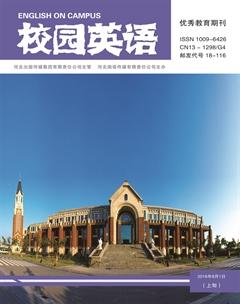Halliday and Systemic—Functional Grammar
閆鴻
1. Biography
Halliday was born in England. In 1942, Halliday was volunteered for the national services' foreign language training course. He mainly studied Chinese on the strength of his success in being able to distinguish tones. In 1945 he was brought back to London to teach Chinese. He took a BA degree in Modern Chinese Language and Literature through the University of London. He then lived for three years in China, where he studied under Luo Changpei at Peking University and under Wang Li at Lingnan University. Having taught languages for 13 years, he changed his sphere of specialization to linguistics, and then developed systemic functional linguistics which includes systemic functional grammar. It was elaborated on the foundations which were laid by his British teacher J. R. Firth and a group of European linguists of the early 20th century, the Prague school. Halliday's first academic position was Assistant Lecturer in Chinese, at Cambridge University, from 1954 to 1958. In 1958 he moved to Edinburgh, where he was Lectured in General Linguistics until 1960, and then Reader from 1960 to 1963. From 1963 to 1965, he was the director of the Communication Research Center at University College, London. During 1964, he was also Linguistic Society of America Professor, at Indiana University. From 1965 to 1971, he was Professor of Linguistics at UCL. In 1972–73 he was Fellow, Center for Advanced Study in the Behavioural Sciences, at Stanford, and in 1973–74 Professor of Linguistics at the University of Illinois. In 1974 he briefly moved back to Britain as Professor of Language and Linguistics at Essex University. In 1976 he moved to Australia as Foundation Professor of Linguistics at the University of Sydney, where he remained until he retired in 1987. Halliday has worked in various regions of language study, both theoretical and applied.
2.Studies of Grammar
2.1 Fundamental categories
Halliday's first major work on the subject of grammar was “Categories of the theory of grammar”, pressed in the journal Word in 1961.http://en.wikipedia.org/wiki/Michael_Halliday -cite_note-19 In this paper, he argued for four “fundamental categories” for the theory of grammar: unit, structure, class, and system. These categories, he argued, are “of the highest order of abstraction”, but he defended them as those necessary to “make possible a coherent account of what grammar is and of its place in language”.
2.2 Grammar as systemic
Halliday's early paper shows that the notion of “system” has been part of his theory from its origins. Halliday's “systemic grammar” is a semiotic account of grammar, because of this orientation to choice. Every linguistic act involves choice, and choices are made on many scales. Systemic grammars draw on system networks as their primary representation tool as a consequence. For instance, a major clause must display some structure that is the formal realization of a choice from the system of “voice”, i.e.
2.3 Grammar as functional
Halliday's grammar is not just systemic, but systemic functional. He argues that the explanation of how language works “needed to be grounded in a functional analysis, since language had evolved in the process of carrying out certain critical functions as human beings interacted with their 'eco-social' environment”. Halliday's early grammatical descriptions of English, called “Notes on Transitivity and Theme in English including reference to four components in the grammar of English representing four functions that the language as a communication system is required to carry out: the experiential, the logical, the discoursal and the speech functional or interpersonal”.
Halliday's followers see his work as representing a competing viewpoint to the formalist approach of Noam Chomsky. Halliday's stated concern is with “naturally occurring language in actual contexts of use” in a large typical range of languages. Critics of Chomsky often characterise his work, by contrast, as focused on English with Platonic idealization, a characterization which Chomskyans reject. Although there is something disadvantageous in Hallidays theories, they still have an fatal impact on the research of language.
References:
[1]胡壯麟.韓禮德的語言觀[J].外語教學與研究.1984(01).
[2]李君子.談韓禮德的系統功能語言學[J].科教文匯(下旬刊).2008,(09).
[3]武寧.談韓禮德的功能語言學[J].南昌教育學院學報,2010,(04).
[4]Halliday MAK.An Introduction to Functional Grammar.2000.
[5]Halliday MAK,Matthiessen C.An Introduction to Functional Grammar.2004.
- 校園英語·上旬的其它文章
- The Comments on the American Constitution
- How critically analyse: ‘Leadership development opportunitiesshould beprovided in all organizations’?
- The Political Theory of Mencius on Constitutionalism
- When Landscapes Carve On Your Face
- 希臘古羅馬神話中人物名稱的象征意義
- An Eco—critical Interpretation of the Conflicts in the Poem “Snake”

